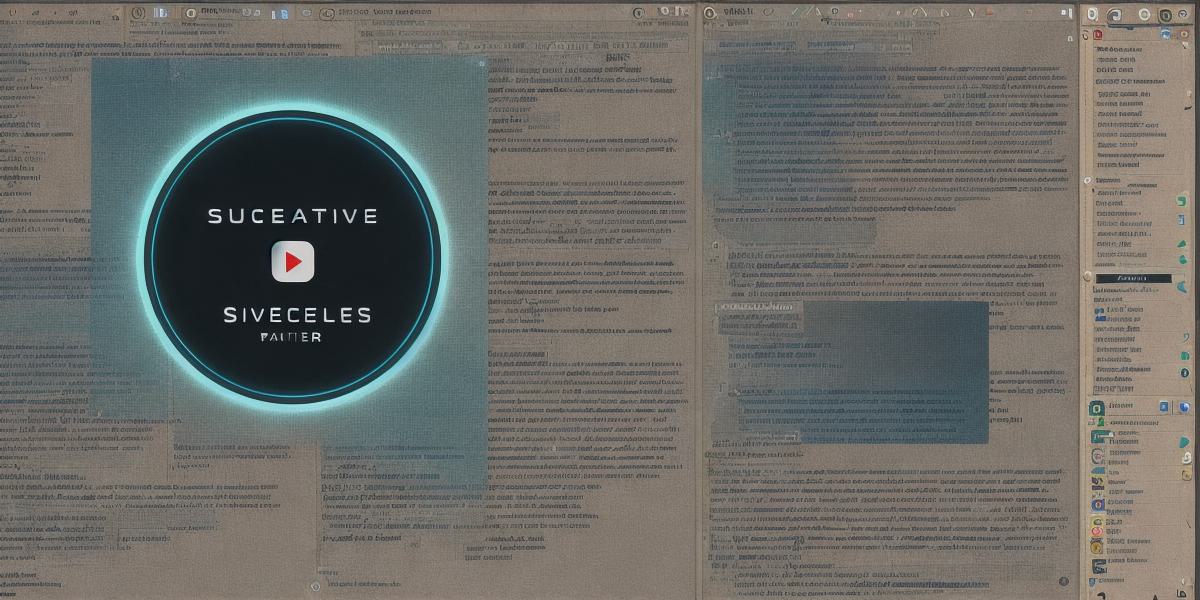The gaming industry is a highly competitive field that requires creativity, technical expertise, and an understanding of market trends. To become a successful game developer, you need to be passionate about creating games, have a strong work ethic, and continuously learn and adapt to new technologies. In this article, we will discuss seven proven strategies that can help you succeed in the game development industry.
- Start with a Strong Portfolio:
Your portfolio is your first impression with potential employers or clients. It showcases your skills and experience as a game developer. To create a strong portfolio, start by developing small games that demonstrate your abilities. You can use game engines like Unity, Unreal Engine, or Construct to build your games quickly. Also, make sure to include details about the tools you used, the programming languages you are proficient in, and any awards or recognition you have received. - Networking:
Networking is crucial for becoming a successful game developer. Attend industry events, join online communities, and connect with other developers to learn from their experiences and share your knowledge. You can also reach out to game development companies on social media platforms like LinkedIn and Twitter to showcase your skills and interest in the field. Networking not only helps you find job opportunities but also exposes you to different perspectives and ideas that can help you improve your work. - Collaboration:
Collaborating with other developers can help you learn new skills, gain exposure to different perspectives, and build your network. You can collaborate with other developers by joining open-source projects or participating in game jams. This will give you the opportunity to work on a project with a team of experienced developers and contribute to its success. Collaboration also helps you learn from others, which can help you improve your skills and develop new ideas. - Continuous Learning:
The gaming industry is constantly evolving, and new technologies are emerging every day. To stay ahead of the curve, it’s essential to continue learning and experimenting with new tools and techniques. You can attend workshops, take online courses, or read books on game development to improve your skills. Also, keep up-to-date with the latest trends and technologies in the gaming industry by following industry blogs and websites. Continuous learning helps you stay current with the latest developments in game design and technology, which is critical for staying competitive in the industry. - Build a Strong Personal Brand:
Your personal brand is your unique identity as a game developer. It reflects your values, interests, and expertise. To build a strong personal brand, create a website or blog that showcases your work and experience. You can also use social media platforms like Twitter, Instagram, and LinkedIn to share your thoughts, ideas, and updates about your projects. Building a strong personal brand will help you stand out from the competition and attract potential employers or clients who are looking for a developer with your specific skills and expertise. - Be Patient and Persistent:
Becoming a successful game developer requires patience and persistence. It takes time to develop the skills needed to create high-quality games. Don’t get discouraged if your first few projects don’t turn out as expected. Instead, use this as an opportunity to learn from your mistakes and improve your skills. Remember that success often comes to those who are willing to put in the hard work and never give up on their dreams. - Find Your Niche:
Finding your niche is essential for success in the game development industry. Identify what sets you apart from other developers and focus on developing games in that area. For example, if you have a passion for creating puzzle games, develop games that cater to this niche. This will help you stand out from the competition and attract potential employers or clients who are looking for a developer with your specific skills and expertise.
Conclusion:
Becoming a successful game developer requires hard work, dedication, and a clear understanding of the market. By following these seven proven strategies, you can improve your chances of success in the gaming industry. Remember to start with a strong portfolio, network, collaborate, continue learning, build a strong personal brand, be patient and persistent, and find your niche. With these tips in mind, you’ll be well on your way to becoming a successful game developer.
FAQs:
- What skills do I need to become a successful game developer?
- Strong programming skills, creativity, attention to detail, problem-solving abilities, and knowledge of game design principles are essential for becoming a successful game developer.

- Strong programming skills, creativity, attention to detail, problem-solving abilities, and knowledge of game design principles are essential for becoming a successful game developer.
